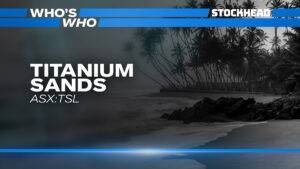CRITERION: Four fallen tech angels that just need a little faith right now

Picture: Getty Images
Investing lore goes that you can’t go wrong buying a quality stock trading at a steep discount to its historic peak, because eventually the price will recover to a fresh record.
We’re not sure whether that one’s attributable to Warren Buffett, but it sounds like something he would say …
The operative words here are ‘quality’ and ‘eventually’ as the recovery might take some time to unfold and the stocks could have been overvalued in the first place.
Look no further than technology-stock-that’s-not Dicker Data (ASX:DDR), the country’s biggest distributor of computer hardware and software to the commercial/enterprise sector.
Tightly held by founder David Dicker and his former wife Fiona Brown, Dicker Data has delivered solid shareholder returns over decades but has lost one-third of its value over the last 12 months.
One reason is a flat second (December) half profit, weighed down by an underperforming New Zealand arm, acquisition hangovers and computer chip shortages.
At last week’s AGM management pointed to better times, with March quarter revenue up 17 per cent to $772 million and pre-tax profit improving 9 per cent to $26 million.
Dicker Data is in the awkward position of being classed as a tech stock, when in reality it has more in common with a logistics play.
As a result, the stock has been dragged down with its more speculative tech ‘peers’ – although a philosophical David Dicker notes the company also benefited when tech stocks were in vogue.
“We have been in these holes before,” he says. “When Covid started the shares went to $3. I bought a lot of shares then and made a fair bit of money [they now trade around $8.40].”
READ: Why Dicker Data believes ASX Tech is now in pole position
Small appliances group Breville Group (ASX:BRG) has surfed the home barista boom with its increasingly elaborate coffee makers, while expanding into the US and Europe.
In June last year the company launched into South Korea and the next target is the Middle Kingdom, which might have all the tea in China but is rapidly developing a taste for coffee.
Yet Breville shares are 40 per cent below their August 2021 peak. In May the stock lost around 6 per cent, despite management reiterating expectations of underlying earnings of $165-172 million for the full year, 5-10 per cent higher.
Breville is also the bourse’s 13th most heavily short sold stock, with ‘shorters’ accounting for 7 per cent of the register.
For years global four-wheel drive accessories chain ARB Corporation (ASX:ARB) has tapped into the off-road boom (or on-road in the ‘burbs boom, with a power winch and safari snorkel just in case).
However ARB shares have been bushwhacked since early 2022, losing 60 per cent of their value. An uninspiring company update in early May revealed revenue for the nine months to March of $502 million, four per cent lower than the previous corresponding stanza.
Headwinds included constrained new vehicle availability (which is easing) and volatile economic and political conditions in some export markets.
Our final tarnished hero is Jumbo Interactive (ASX:JIN), which sells online lottery tickets on behalf of the providers, notably The Lottery Corporation (ASX:TLC), owner of the Tattslotto, Oz Lotto and Powerball franchises.
Jumbo’s performance has been constrained by a poor run of Powerball and Oz Lotto jackpots, but investors have overlooked the company’s success in increasing its per-ticket commissions.
The stock peaked at $27 in October 2019; it now changes hands for around $14.60.
Australian lottery sales overall grew from $2.4 billion in 1990 to $7.8 billion last year – a period covering two recessions, the global financial crisis and the pandemic.
Resilient? You betcha.
This story does not constitute financial product advice. You should consider obtaining independent advice before making any financial decisions.
UNLOCK INSIGHTS
Discover the untold stories of emerging ASX stocks.
Daily news and expert analysis, it's free to subscribe.
By proceeding, you confirm you understand that we handle personal information in accordance with our Privacy Policy.








